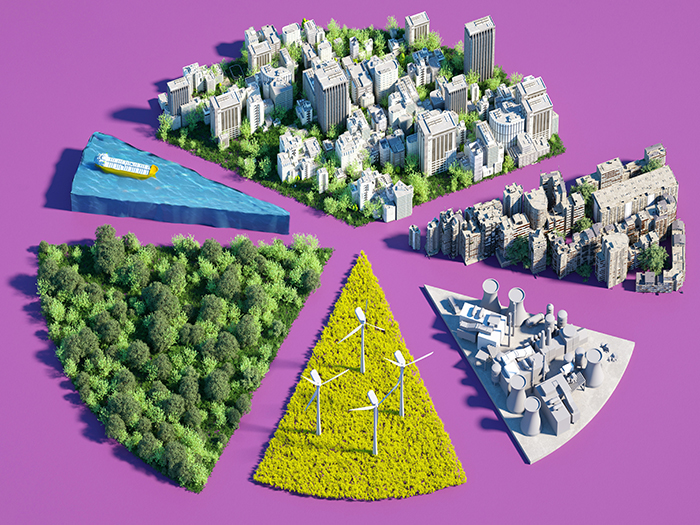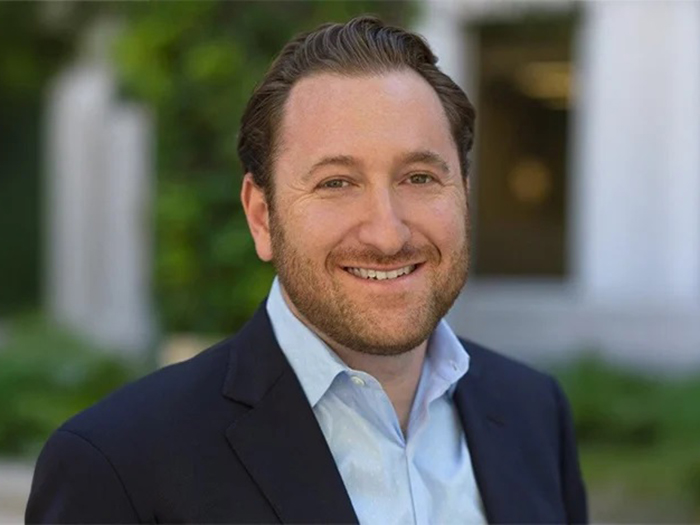Insuring the Climate Transition: Why Our Industry Is Perfectly Poised to Curb This Crisis

When Benjamin Franklin founded The Philadelphia Contributorship, he did so in the shadow of one of the worst fires in Philadelphia’s history.
The fire, which subsumed Fishbourn’s wharf on the Delaware River, spread across the street from the waterfront, wreaking havoc on a number of homes in 1730.
All told, the stores on the waterfront burned, three homes were destroyed and the damage totaled several thousand pounds (the city’s currency at the time), per U.S. History, a site run by the Independence Hall Association.
The Contributorship was Franklin’s solution to this tragedy. Founded in 1752, it was the nation’s first insurance company. The enterprise dedicated itself to insuring homes from fires. But they wouldn’t underwrite just any house. The company’s directors held monthly meetings to vote on whether or not a particular property should be insured and they had a distinct preference: brick homes.
Today, if you walk the streets of Philadelphia, you’ll see the impact the Contributorship had on the city’s architectural style. Street after street is full of brick row homes, many of which stood before “America” was even a thought in the founding father’s minds.
This little historical sketch is illustrative of the power the insurance industry holds to create societal change.
Today, climate change poses an existential threat to people across the globe. Scientists have said that we need to reach net zero emissions by 2050 to stem the worst, most catastrophic effects of climate change.
That means that as a society we will need to emit no more carbon into the atmosphere each year than what is taken out, through processes like photosynthesis, building soil carbon and — maybe one day — tools that capture and remove carbon from the air.
“The scale of the challenge is really very large and this is the defining decade when we really need to make a lot of progress,” said Amy Barnes, head of sustainability and climate change strategy, Marsh.
To stop climate change, we need massive change at all levels of society. We need to build more energy efficient buildings, adjust our infrastructure and examine the ways we do business. Energy, transportation and agricultural industries will need to change dramatically, and that’s just to name a few.
“What industry isn’t going to be impacted?” Samantha Dunn, head of Nat CAT protection gap (NCPG) and co-lead of reinsurance sustainability, at Swiss Re, said in an email.
“Broadly, we observe that insureds who aren’t currently taking steps to improve their resilience aren’t doing so because they don’t understand their true risk, are overwhelmed with the landscape and don’t know which levers to pull to be successful or think they can’t afford it,”
We’ll also need to prepare for the effects of climate change that are already here. If you have any doubt about that, just look at a recent hurricane or wildfire season. When properties are damaged, we can’t just restore them to their pre-loss condition. We need to make them more resilient.
So, insurers, why not make it a priority to step up? Just as in Franklin’s time, whether or not a business or product can get insurance determines whether or not it’s able to survive.
Out of all in the financial services industry, we’re uniquely positioned to help businesses make the changes they need to not only survive, but thrive as we transition to a more sustainable economy. Insuring the climate transition will be tough work, but it may be necessary.
“Nothing happens without insurance,” Barnes said. “Airplanes don’t fly; hospitals don’t get built; lawyers won’t practice.”
The scale of the change that needs to occur is huge and will undoubtedly vary by sector. That’s why Risk & Insurance® is planning a series, “Insuring the Climate Transition” on how the transition to a greener economy will affect sectors ranging from energy and infrastructure to agriculture and aviation.
The series will examine not only what products exist to manage the risks that come with this transition, but also what new tools underwriters will need to develop as they think about insuring the many technologies that will be needed to help the globe achieve carbon neutrality.
“We also need to just try. Pilot, beta test, learn and improve,” Dunn said. “Sustainability is a journey and we all have a role to play.” &
 3 Key Actions the Net-Zero Insurance Alliance Is Taking to Globally Reduce Emissions
3 Key Actions the Net-Zero Insurance Alliance Is Taking to Globally Reduce Emissions
Net-zero insurance will play a key role in helping the global economy reach the ambitious climate goals needed to prevent disaster.

How Rethinking Agricultural Norms Helps Farmers Respond to Growing Climate Risks
The agricultural sector will need to transition to sustainable practices to help fight climate change. Here’s how the insurance industry can help.

3 Ways Severe Weather Is Increasing Environmental and Pollution Liability
Increasingly frequent and strong storms are ramping up pollution and environmental liability risks. Is your company covered?










